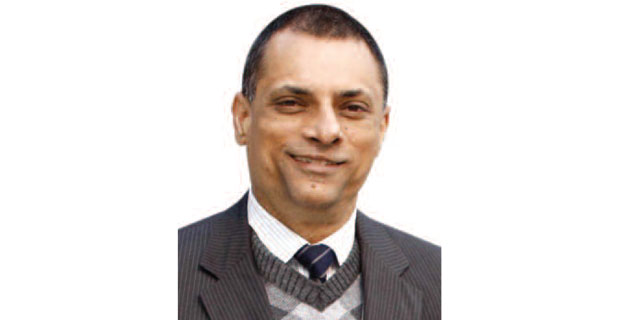Editor’s Desk
Wealth does not trickle down to the poor. Oxfam knows this, the IMF knows this, the World Bank knows this. Poor people have always known this.
--Winnie Byanyima, Executive Director, UNAIDS
As he prepares to take over the reins of the World Bank at its Washington, D.C. headquarters in June for a five-year term, one of Ajay Banga’s main challenges will be to ensure that the poor of the world don’t get poorer, and that wealth does eventually trickle down to this underprivileged section.
Talking of India, the nation has the world’s largest number of poor people—the ones that somehow eke out a living and subsist below the poverty line. The actual number of India’s poor is contentious, though, since global agencies have come up with figures that vary anywhere between 140 million to 229 million.
According to the 2022 Global Multidimensional Poverty Index (MPI) report, India has managed to pull out 415 million people from below the poverty line in the last decade and half. While this is reassuring, what is not is that starting January 1, 2023, the Indian Government decided that a new central sector scheme would provide free grains to 813.50 million beneficiaries—about 67 percent of India’s population which is considered economically most vulnerable. Rightfully, the scheme aims to fulfill the vision of One Nation, One Price, One Ration, and ensure effective and uniform implementation of the National Food Security Act (NFSA). But its implementation also means that all is not economically hunky dory with the world’s most populous nation.
The World Bank’s India Overview states that inequality in consumption remains persistent with a Gini index—a measure of the distribution of income across a population—of around 35 over the past two decades. Child nutrition remains seriously high—35.5 percent of children below age 5 are stunted, while the figure rises to a disconcerting 67 percent for children in the 6-59 month age bracket. Besides, even though headline employment indicators have improved since 2020, concerns remain about the quality of jobs created and the real growth in wages.
The India Overview also says that in order to meet its goal of becoming a high-income nation by 2047—the 100th year of independence from British rule—the country will need to have a growth process that delivers broad-based gains to the bottom half of the population. It, therefore, becomes imperative that growth-oriented reforms are accompanied by an expansion in “good jobs” and more women are drafted into the workforce. The World Bank states that it is partnering with the Indian Government to help strengthen policies, institutions, and investments to create a better future for the country and its people through green, resilient and inclusive development.
Banga’s previous track record that brought him the job at the World Bank is indeed very formidable. For instance, until recently he served as Vice Chairman at General Atlantic. He was previously the President and CEO of Mastercard. Born and educated in India, he’d joined Nestlé in India in 1981 and later moved to PepsiCo where he was involved in the launch of Pizza Hut and KFC. Among many other fine distinctions, he has been decorated with the Padma Shri in India and the Ellis Island Medal of Honor in the US.
Tributes have come Banga’s way since the announcement in May. President Joe Biden in a statement has said that “Ajay Banga will be a transformative leader, bringing expertise, experience, and innovation to the position of World Bank President.” In another statement, US Treasury Secretary Janet Yellen has said, “Ajay Banga will bring to this important role the right leadership and management skills, experience of living and working in emerging markets, and financial expertise to lead the World Bank at a critical moment in its history.”
Indian Finance Minister Nirmala Sitharaman in early May tweeted, “Hearty congratulations Ajay Banga on being selected as the President of @WorldBank. I am confident that you’ll bring your wide experience in the corporate world for meeting the goals of the bank.” And in a statement the World Bank has said that its “Board looks forward to working with Banga on the World Bank Group Evolution process, as discussed at the April 2023 Spring Meetings, and on all the World Bank Group’s ambitions and efforts aimed at tackling the toughest development challenges facing developing countries.”
In light of all these encomiums and expectations Ajay Banga’s task as the President of the World Bank is quite clearly cut out.
Sayantan Chakravarty
sayantanc@gmail.com











Comments.